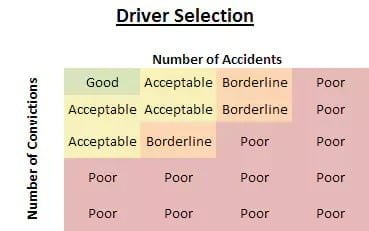The end of holiday season is an exciting time of year for shoppers. The festivities are wrapping up and the big retail chains are pull out all the stops with deals and special savings on their most popular items. This is the time to finally pull the trigger on all those gift ideas and big purchases you’ve been mulling over.
More and more though, savvy shoppers are deciding to avoid the crush and chaos of mall crowds and packed parking lots by shopping online. Who doesn’t love the idea of getting all their holiday shopping done in their pajamas while sipping a hot chocolate? Let everyone else fights the crowds! Plus, some of the best specials of the season are web-exclusives, making the idea even more tempting.
Unfortunately, holiday sales are also a prime opportunity for online con-artists and scammers to target unwary consumers. Nothing sours the eggnog faster than a call from your bank asking why “you” have suddenly maxed out all your cards. You don’t want your holiday fun to be spoiled by falling victim to an identity thief or cyber-crook, so as exciting all these holiday sales are, you’ll want to keep a good head on your shoulders while you browse online this year.
Thankfully, despite popular misconceptions, most cyber crime relies on old fashion confidence schemes and phishing scams than any kind of hacking or high-tech thievery. The vast majority of online frauds can be defeated with some common sense rules.
If someone is asking for personal information, ask yourself why they need it
Phishing, when scammers try to acquire sensitive personal information about a person (such as credit card numbers or passwords) by passing themselves as someone else, is one of the oldest and most popular internet scams out there. Phishers do it because, sadly, it works. People are naturally trusting and con-artists prey on that.
If you get an email from your bank, your credit card company, or a large online retailer you use asking you for personal information, take a second to ask yourself why that they would ask that. Many of these emails will attempt to intimidate you into acting rashly with aggressive language like “you must respond immediately!” or will insinuate that your account will be locked or deleted if you don’t give them what they want.
When you step back and think about it though, there is almost no reason any company would ever do that. What’s more, the vast majority of large institutions and businesses have stated policies that they will never ask for personal information in the first place because they know that scammers try this sort of thing. Always err on the side of caution (by which I mean the delete key).
A new sneaky variation on this old con is to send you a text message under the guise of a credit card company or bank that will inform you that your account has been compromised and you need to call a number they provide to “secure” your account right away! When you call the number you’ll be greeted by a professional seeming automated response that will dutifully take your information and deliver it straight into the waiting hands of scammers who will be delighted to go on a shopping trip with it.
Again, this scheme relies on scaring you into acting without thinking. If you ever receive one of these texts, take a second to breathe and don’t call the number they provide. Think rationally, if your account really was compromised, why would the bank need your social insurance number or bank card number to lock it off? It’s a scam. If the text really rattles you, call your bank or credit card company directly to make sure your account is fine (it will be) and report the phishing attempt.





0 Comments